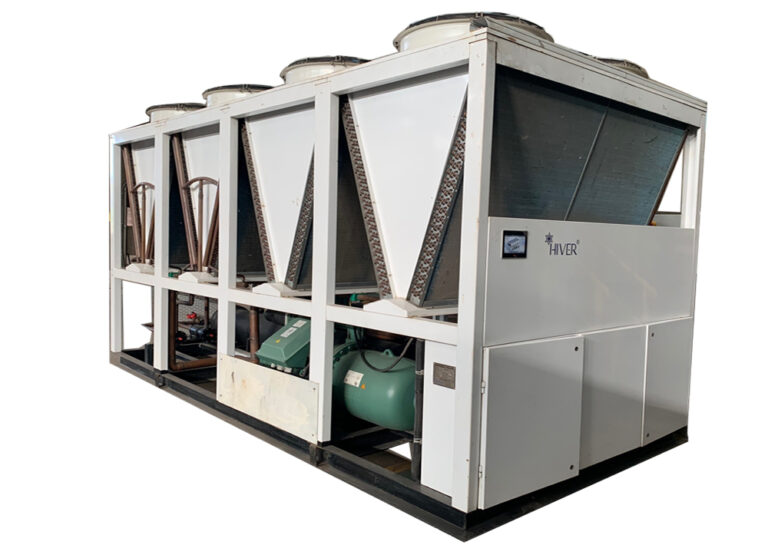Air-cooled chillers are an integral component of many modern cooling systems, offering a reliable and efficient solution for a wide range of industrial, commercial, and institutional applications. Unlike water-cooled chillers, which rely on cooling towers and a constant water supply, air-cooled chillers utilize ambient air to dissipate heat through finned condenser coils and axial fans. This self-contained design simplifies installation, reduces maintenance requirements, and offers a high degree of flexibility in terms of placement and scalability.
With advancements in chiller technology, today’s air-coNo Cooling Tower Required
Air-cooled chillers reject heat directly to the surrounding air using fans and condenser coils. This design eliminates the need for a cooling tower, condenser water pump, and associated plumbing — making the system more compact and reducing both capital and operational expenditures. This is especially beneficial in projects with tight budgets or space constraints.
Ideal for Water-Scarce Locations
In places where water is either expensive or scarce — such as desert regions or urban areas with water restrictions — air-cooled chillers are environmentally and economically superior. They operate in a closed-loop system without needing makeup water or dealing with water losses due to evaporation, drift, or blowdown, which is common in water-cooled systems.
Modular and Scalable Design
Many air-cooled chiller models are designed to be modular, meaning additional units can be added as cooling demand increases without major infrastructure modifications. This allows for phased installation and easier upgrades, making them ideal for growing industries or campuses with expanding cooling needs.
Excellent for Rooftop or Outdoor Installations
Air-cooled chillers are typically packaged systems that are weatherproof and can be installed outdoors, including rooftops, parking areas, or ground slabs. This setup frees up valuable indoor real estate and simplifies the piping layout, making them popular for commercial buildings and data centers.
Low Maintenance in Harsh Environments
Unlike water-cooled chillers, air-cooled systems do not suffer from biofouling, scaling, or corrosion caused by poor water quality. In coastal areas or industries with airborne contaminants, this means lower maintenance, longer lifespan of condenser coils, and better reliability over time.
Energy Savings with Variable-Speed EC Fans
Modern air-cooled chillers are equipped with electronically commutated (EC) fans, which allow precise control of airflow. These fans automatically adjust speed based on heat load and ambient temperature, enhancing part-load energy efficiency, lowering power consumption, and reducing noise levels — especially during nighttime or low-demand conditions.oled models are more energy-efficient, environmentally friendly, and suited to diverse operating conditions than ever before. From data centers and manufacturing plants to hospitals and shopping complexes, air-cooled chillers continue to be a preferred choice where water conservation, fast deployment, and ease of maintenance are critical.

